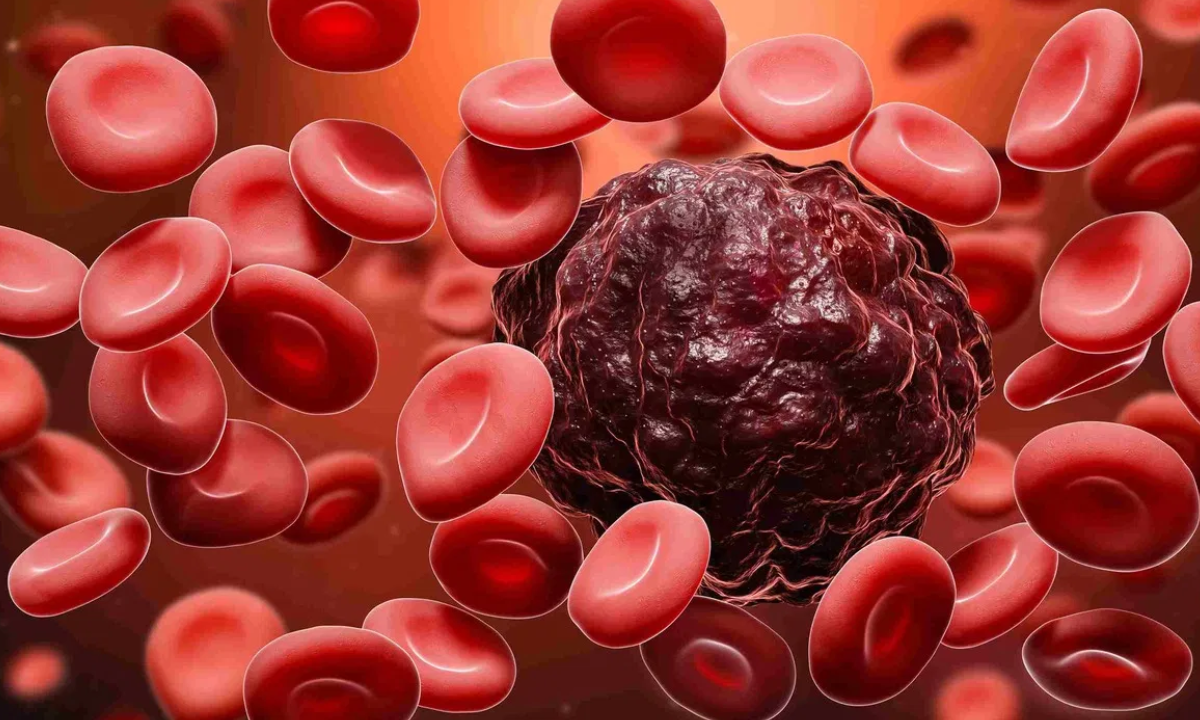Blood Cancer: What Is It, How Is It Diagnosed, and How Is It Treated?

Blood cancer, also known as haematologic cancer, affects the production and function of blood cells. This type of cancer starts in the bone marrow, where blood is produced. The most common types of blood cancer are leukaemia, lymphoma, and myeloma. Understanding the nature of blood cancer and its diagnosis also helps in understanding the various treatment options available.
Blood Cancer: How Does It Happen & What Are Its Types?
Blood cancer occurs when abnormal blood cells start to grow uncontrollably, disrupting the normal function of the blood cells, which fight off infections and produce new blood cells.
Types of Blood Cancer
-
Leukaemia: This type of cancer affects the blood and bone marrow, leading to the production of abnormal white blood cells.
-
Lymphoma: Lymphoma is a cancer of the lymphatic system, which is part of the immune system. It affects lymphocytes, a type of white blood cell that fights infection.
-
Myeloma: Myeloma affects plasma cells, which are a type of white blood cell found in the bone marrow. Plasma cells produce antibodies that help fight infections.
Symptoms of Blood Cancer
Symptoms of blood cancer can vary depending on the type but commonly include:
- Persistent fatigue
- Fever and chills
- Frequent infections
- Unexplained weight loss
- Swollen lymph nodes
- Bone pain
- Easy bruising or bleeding
Diagnosing Blood Cancer
Diagnosing blood cancer involves a series of tests and examinations to identify the type and stage of the disease:
- Blood Tests
Blood tests, such as complete blood count (CBC), can detect abnormalities in blood cells that may indicate cancer. Other blood tests can measure specific proteins or chemicals associated with cancer.
- Bone Marrow Biopsy
A bone marrow biopsy involves taking a small sample of bone marrow tissue to examine for cancer cells. This test can provide detailed information about the type and extent of the cancer.
- Imaging Tests
Imaging tests, such as X-rays, CT scans, and MRIs, help to visualise the extent of the cancer and check for involvement in other parts of the body.
- Lymph Node Biopsy
In cases of lymphoma, a lymph node biopsy may be performed to examine the lymphatic tissue for cancer cells.
Treatment Options for Blood Cancer
Treatment for blood cancer depends on the type, stage, and individual patient factors. Here are the main treatment options:
- Chemotherapy
Chemotherapy uses powerful drugs to kill cancer cells or stop their growth. It can be administered orally or intravenously. Chemotherapy is often used in combination with other treatments.
- Radiation Therapy
Radiation therapy uses high-energy rays to target and destroy cancer cells. It can be used to shrink tumours, relieve symptoms, or as part of a combined treatment approach.
- Stem Cell Transplant
A stem cell transplant involves replacing damaged bone marrow with healthy stem cells. This procedure allows for higher doses of chemotherapy or radiation to be used, as the new stem cells can help regenerate healthy blood cells.
- Immunotherapy
Immunotherapy boosts the body’s natural defences to fight cancer. It involves using substances made by the body or in a laboratory to improve or restore immune system function.
- Targeted Therapy
Targeted therapy uses drugs or other substances to precisely target cancer cells without affecting normal cells. This treatment focuses on specific molecules involved in cancer cell growth and survival.
- Neoadjuvant Therapy
Neoadjuvant therapy involves administering treatments like chemotherapy or radiation before the main treatment, such as surgery, to reduce the size of the tumour. This approach can make the primary treatment more effective and less invasive.
Coping with Blood Cancer
Dealing with a blood cancer diagnosis can be overwhelming. Here are some strategies to help cope with the emotional and physical challenges:
- Emotional Support
Seeking support from family, friends, or support groups can provide emotional relief. Professional counselling can also help in managing stress and anxiety related to the diagnosis and treatment.
- Nutrition and Exercise
Maintaining a healthy diet and engaging in regular physical activity can improve overall well-being and help manage treatment side effects.
- Pain Management
Pain management is an important aspect of cancer care. Working with healthcare providers to develop an effective pain management plan can enhance quality of life.
- Palliative Care
Palliative care focuses on providing relief from symptoms and improving the quality of life for patients with serious illnesses. It can be integrated with curative treatment to address physical, emotional, and spiritual needs.
Comprehensive Treatment Approach for Blood Cancer
At KKR Hospital, we are dedicated to providing an all-round treatment for blood cancer patients, encompassing the latest diagnostic tools and a broad range of treatment options, including innovative approaches like neoadjuvant therapy. At KKR Hospital, our diagnosis approach allows us to tailor treatment plans that meet each patient’s unique needs, ensuring comprehensive and personalised care. We prioritise both curative and supportive treatments to manage symptoms and enhance the quality of life.
